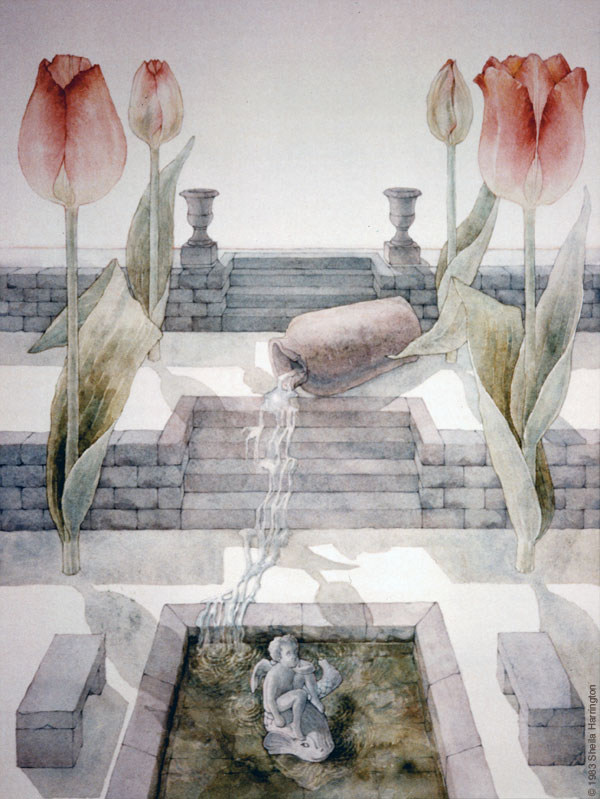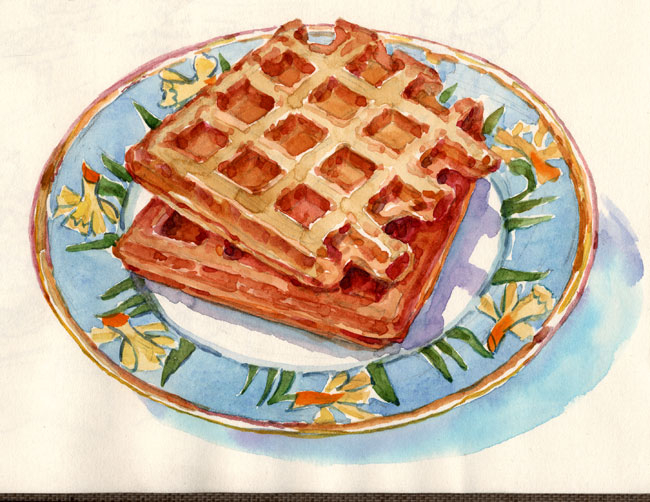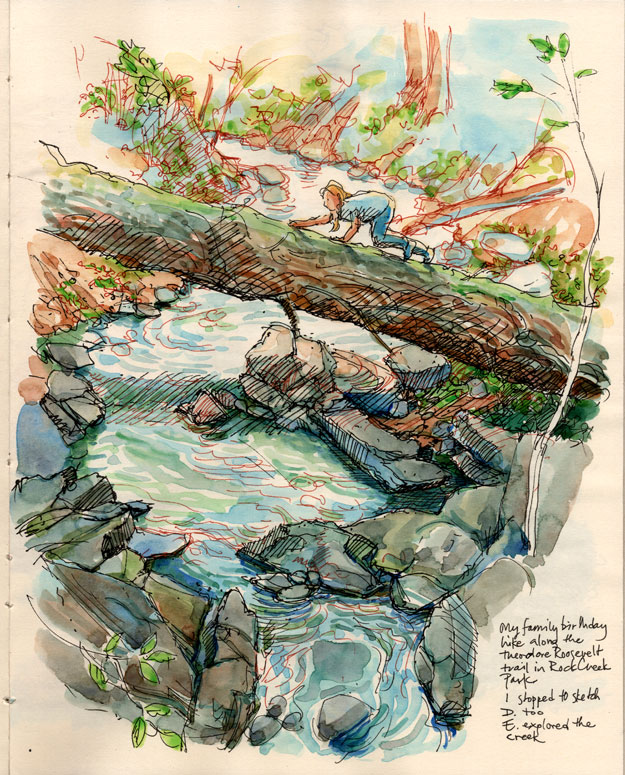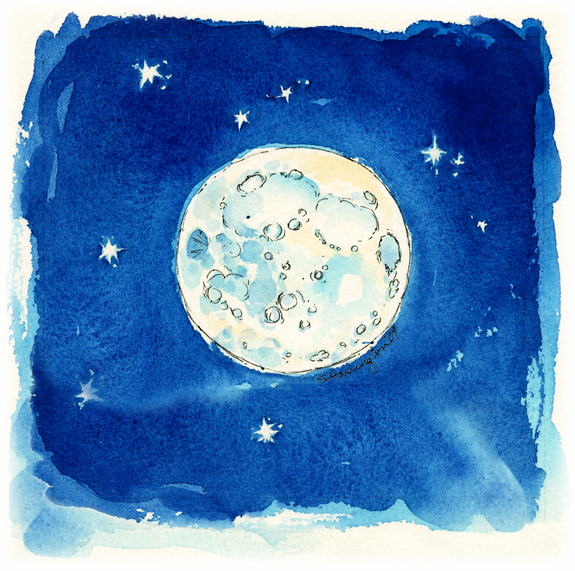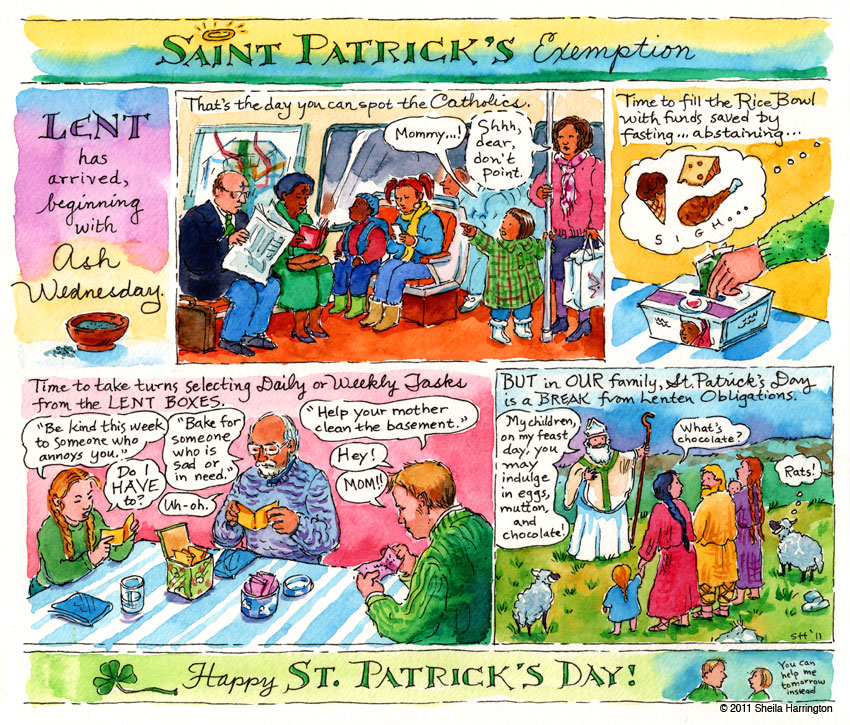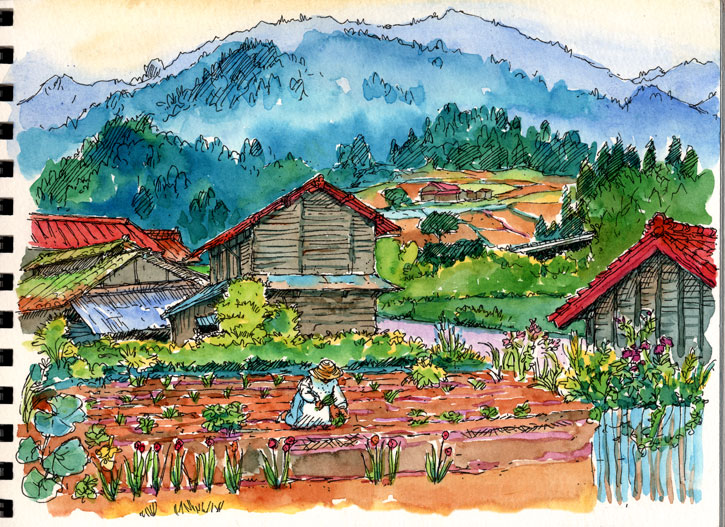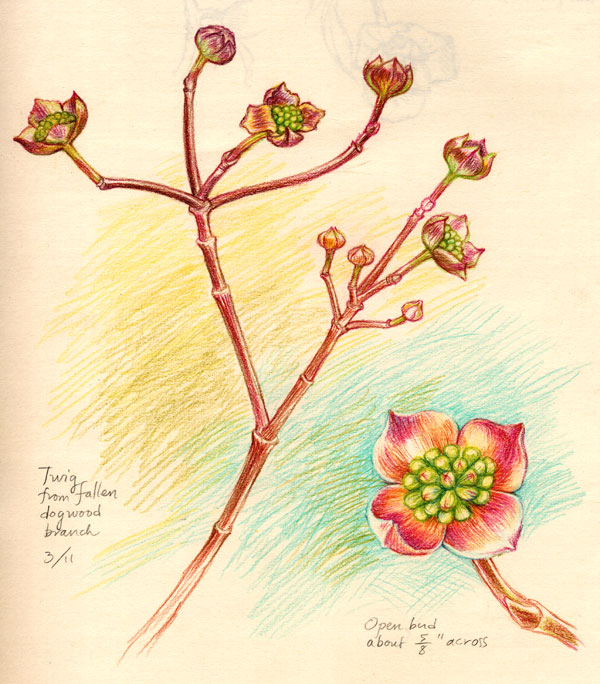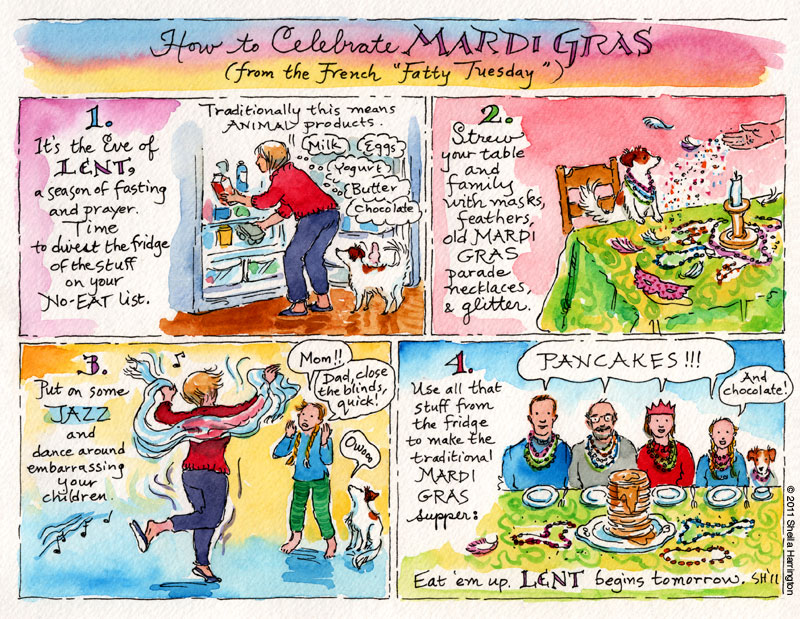To the Thawing Wind
Today is the birthday of Robert Frost (1874-1963), who is probably best known for his thoughtful, evocative poetic observations of rural life, inspired by his years of farming in England and New Hampshire: Mending Wall, The Road Not Taken, The Pasture. Frost’s poetry is not necessarily easy reading, although it seems accessible at first glance, drawing the reader in through a seemingly conventional, anecdotal surface. But often in his choice of subject matter and his carefully crafted blend of meters and language styles one can see that he is not exactly a 19th-century romantic pastoral wander-through-the-daffodils kind of guy.
Less often quoted are his darker poems on themes of abandonment, estrangement, and the bitterness of loss, poetry reflecting Frost’s own difficult life journey. Losing his father to tuberculosis at age eleven, then his mother to cancer; laboring, unsuccessfully at first, to farm and write and support a family (later supplemented by teaching and the eventual success of his poetry); seeing his sister committed to a mental hospital; outliving four of his six children, who succumbed variously to cholera, childbed fever, and suicide; and outliving also his wife, who died, like his mother, from cancer—these are weighty burdens for a man already struggling with depression, which seems to have run in the family for generations.
Although such a series of tragedies could bring on depression in the most resilient of characters. Which makes Frost’s achievement all the more remarkable: not only that he found profoundly inventive and powerful means of expressing human despair, in a voice both intimate and universal, but that he could also convey deeply felt, unsentimental appreciation for life’s beauty and joy. Not only to endure, but to make of pain a shared work of art to illuminate the soul and expand the vision: that is a birthday gift for everybody.
Come with rain, O loud Southwester! Bring the singer, bring the nester; Give the buried flower a dream; Make the settled snowbank steam; Find the brown beneath the white; But whate’er you do tonight, Bathe my window, make it flow, Melt it as the ice will go; Melt the glass and leave the sticks Like a hermit’s crucifix; Burst into my narrow stall; Swing the picture on the wall; Run the rattling pages o’er; Scatter poems on the floor; Turn the poet out of door.For another Robert Frost poem, and a picture, please see A Snowy Evening.
Today is also the birthday of poet Alfred Edward Housman, and for a bio, picture, and poem, please see Loveliest of Trees.
This image is available as a high-resolution print on 8.5″ x 11″ archival paper.
Våffeldagen
According to tradition, today is the feast of the Annunciation, the day on which the angel Gabriel appeared to Mary to announce an unexpected little surprise that was to arrive on Christmas Day…EXACTLY nine months later. Unlike most of the rest of us moms, Mary was apparently not fated to go into premature labor or run weeks past her due date, thus alarming midwives, spouse, and relatives.
In Sweden, this day is celebrated with waffles. You may ask why we celebrate the pregnancy 2000 years ago of a nice small-town Jewish girl with a medieval Dutch cake? Well, as the story goes, in Sweden, the Feast of the Annunciation is called Vårfrudagen, or “Lady Day.” Which is similar enough to Våffeldagen, “Waffle Day,” to cause a little confusion on March 25th and launch an annual tradition. It’s a confusion we are happy to perpetuate in our household, despite its being the middle of Lent. It IS the Annunciation, after all.
This image is available as a high-resolution print on 8.5″ x 11″ archival paper.
A Capital Spring
Today winter officially packed its bags and departed, and spring took the throne. It ought to come as no surprise, because we have seen it coming for weeks in the swelling tips of branches, the green points pushing up through the earth, the increase in morning birdsong that disregards Daylight Savings Time. Nevertheless every year it astonishes.
Much poetry and prose has been written in praise of spring, but if you have not yet stumbled across Louis J. Halle’s Spring in Washington, let this be the year. Beginning in the mid-1940s, Halle (1911-1988) worked in Washington, DC for about ten years at the U.S. State Department. Although Halle was a citydweller with a theoretically brief commute and could have dozed until practically the last minute, instead he had the habit of rising before dawn, hopping on his bicycle, and heading out for a ten or twelve mile exploration of DC’s wild green pockets and fringes before heading to the office.
No doctor ever prescribed a view of the open world for me, though it was the tonic I needed, rather than something to take in a glass before meals.
In 1947 he published Spring in Washington, an account of his wanderings. With wisdom, humor, an artist’s eye and a poet’s quill (well, in his case, a typewriter) he shared his observations and discoveries throughout the approach, unfolding, and departure of one expanded spring: January to June, 1947.
To snatch the passing moment and examine it for signs of eternity is the noblest of occupations. It is Olympian. Therefore I undertook to be monitor of the Washington seasons, when the government was not looking. Though it was only for my own good, that is how the poorest of us may benefit the world. A more ambitious man might seek to improve the President of the United States.
Each year I drag this book out and read aloud passages to my family. As I leaf through it now, searching for representative quotes, it’s difficult not to reproduce the book in entirety.
The muskrat swims and raises its young in the woodland stream beneath Connecticut Avenue, never knowing of the crowded buses and taxis that swarm overhead… Roaches Run is a marshy lagoon trapped between the National Airport, on one side, and the railway tracks on the other. Ducks and gulls and herons have remained faithful to it, despite low-roaring airplanes and smoke-breathing locomotives. They are accustomed to these dragons and these pterodactyls, regarding them not.
Halle moved on (his field was actually foreign policy), along the way publishing 22 books, eventually retiring to Switzerland. Plenty of hiking opportunites THERE. He made a visit to DC in 1988, to help launch a new edition of this book, the rights to which he had long ago turned over to the Audubon Naturalist Society (where his book can be obtained). While here he went birding and biking in some of the same old wild green places, which, remarkably (thanks in part to folks like himself), still survive for a venturesome bureaucrat’s early morning ramble.
In early March I look at the apparently lifeless skeletons of the elm trees on the Ellipse and say to myself that in two weeks they will be flowering, as the trees have flowered here for a hundred thousand years. In the middle of April I say that in another ten days the city will be full of singing wood thrushes, though there is none here yet. I know all this will be, but it seems to me so miraculous that I cannot take it for granted.
A few months later he made his own final migration to the great Beyond. Even if he had done nothing else on earth, this jewel of a book that resurfaces each spring, endlessly amusing, sensitive, and wise—an everlasting source of inspiration—would suffice. Happy Spring, Louis Halle.
(This sketch is from a family ramble through Rock Creek Park, mere minutes from our utterly urban home.)
Spring Moon
Wherever you are on this last day of winter, cross your fingers for a clear evening sky, and at sunset climb onto your roof or a tree or a nearby hill to await the moonrise. Because this is the night of the Perigee Moon (from the Greek peri, “around” + ge, “earth”), an unusually large and bright full moon that occurs only about every twenty years.
The moon’s elliptical orbit around the earth means that sometimes it’s closer, sometimes further away from us; and tonight the full moon coincides almost perfectly with the moment of its shortest distance to earth. The apparent increase in size is about 14%, which is enough to make a visible difference. After all, if your weight suddenly increased by 14%, wouldn’t your family notice your unusually large full moon?
Accompanying the large lovely moon will be a noticeable but not alarming rise in the tides, and perhaps an increase in howling. Also, this morning at breakfast we discovered that last night everyone in the family had slept very badly. Was it the dinner? Or, because we earthlings are composed mostly of salt water, could the nearness of the moon affect our inner tides, and therefore our sleep?
See you out there! In the meantime, here are two moon poems suitable for the Eve of Spring.
For another eve-of-spring picture, please see Dream of Spring.
Face of the spring moon– about twelve years old, I’d say.—Kobayashi Issa
who knows if the moon’s a balloon,coming out of a keen city in the sky–filled with pretty people? (and if you and i should get into it,if they should take me and take you into their balloon, why then we’d go up higher with all the pretty people than houses and steeples and clouds: go sailing away and away sailing into a keen city which nobody’s ever visited,where always it’s Spring)and everyone’s in love and flowers pick themselves
—E. E. Cummings
A Wee Pause
The Faces of Misfortune
The mind flinches as it tries to absorb the devastating succession of natural disasters that have taken place merely within the last few years. Hurricanes in the Gulf of Mexico; multiple tsunamis in Indonesia; earthquakes in Haiti, Chile, New Zealand; innumerable floods, landslides, volcanic eruptions and wildfires. And now Japan, with scenes surreal of wreckage and relentless rushing waters and lives swept away—a triple whammy of earthquake, tsunami, and nuclear catastrophe.
Here is a sketch from a visit we made to Japan when our son was teaching there. No matter where we went, total strangers were invariably kind, helpful, and generous, never hinting at the fact of our having dropped atomic bombs on them (the only country in the world to have suffered thus). On a walk one afternoon, we stopped to watch a woman working in her garden. Eventually noticing us, she invited us to see the rest of her garden—and her house—and meet her mother—and finally sent us off with just-harvested potatoes, radishes, and strawberries. This was absolutely typical of the entire trip.
I realize that politeness is a Japanese cultural value. There is a stiff-upper-lip quality that makes me think of stories about post-Blitzed World War II British (is there something about tea?), a characteristic that may lengthen the road to an American-style intimacy. But such sturdiness, resilience, and grace in the face of misfortune can be a blessing and a gift. Shikata ga nai.
The earth has grown so populous that natural disasters have enormous human impact, and simultaneously grown so connected that our common awareness of them is nearly instantaneous. The entire globe is now, truly, at our fingertips. It is theoretically possible to call up a picture of Anywhere, Earth, on the smartphone in one’s hand, if it has been visited by someone with a camera. And, thanks to international airlines (which actually used to be quite a speedy form of travel), many—through school or vacation or international aid organizations or family connections or business—have firsthand knowledge of worlds far from home. From knowledge, connection. We already carry the peoples and landscapes of the earth in our minds. The natural next step is the heart.
If you want to help, one way is to make a donation through the American Red Cross.
Glimpse of Spring
A few weeks ago a fierce thunderstorm blasted our area. The following morning the neighborhood was strewn with dozens of enormous broken branches—all in bud. A little sadly, we brought home a few sprays and put them in water, the vases of bare twigs giving our table a poignant wintery appearance.
The buds, unaware of their fallen state, are now confidently unfolding and bringing forth their hidden treasures, but in miniature. This one is from a pink dogwood tree. The four bracts that usually unfold to a 2″ or 3″ diameter are here only about 5/8” across. But still beautiful.
Today is the birthday of Shakespeare and Company founder Sylvia Beach. For a sketch and a mini-bio, please see Paris Memory.
Fatty Tuesday
Barrett Birthday
Today is the birthday of Elizabeth Barrett Browning, and for a picture and a poem, please see A Love Story.



